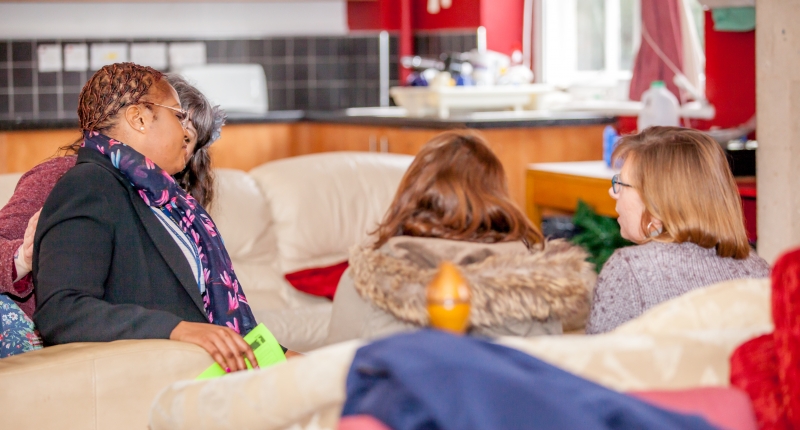Share this article with your friends
Click on the links below to share this article on social media.
Study


What's it like to study theology?
People come to Queen's for a variety of reasons, but a unifying feature is that they come to study theology. All of our qualifications and awards are linked to the study of theology; conversely, we do not offer any awards in other disciplines - though, of course, we want to consider how theology engages with with all aspects of life, and filters into areas such as literature, music or poetry.
Under the broad "umbrella" of theology come a variety of theological sub-disciplines, and these feature within the curricula at Queen's. Students typically encounter topic areas such as mission studies or liturgy, biblical studies or doctrine; equally, they find themselves grappling with the way in which context shapes theological enquiry – for example, in terms of concepts such as gender or ethnicity.
What's it like to study theology at Queen's?
At Queen’s, students learn, pray and grow together in a lively, inclusive, international and ecumenical community, supported by one of the largest, widest-ranging staff teams of any UK theological college. This means that studying theology at Queen’s:
- is challenging and engaging, because theology is never abstract or simply about ideas;
- is rigorous and demanding, because daring to speak of God requires our best thinking and our most honest awareness of our limitations;
- is stimulating and transformative as we open ourselves to the wisdom that comes from each other and those who have gone before us in the faith.
Learning takes place in a variety of levels – undergraduate, postgraduate and research – and in a way that brings together students from a variety of theological backgrounds and contexts. Module cohorts are diverse, and commonly include ministerial candidates, trainee Readers in the Church of England and independent lay students. Discussion between different views and traditions is encouraged, as is making connections between academic studies, ministerial formation and practice.
Academic modules are delivered in multiple ways – via lectures, seminars and small groups, through visits and placements, in classrooms and online. Classes vary in size, but tutors will ensure that opportunity for participation and interaction is maximised. Writing assignments and receiving feedback are also part of the learning process; the opportunity to learn with and from others, and to subject one's own assumptions and beliefs to critical scrutiny, is a precious gift and core to theological study at Queen's.
- Queen's as TEI
- Types of student
- Learning
Studying is supported and strengthened by our academic accreditation and University partnerships. The Queen’s Foundation is an independent, ecumenical Theological Education Institution (TEI) and is recognised as a higher learning institution (listed body) by the UK government. Students at Queen’s study for Higher Education awards, which are validated by several partner universities. “Validation” means that upon successful completion of assessment, students will exit with an award made by the validating university.
The student body of the Queen’s Foundation is diverse in terms of age (although predominantly mature students), gender, nationality and ethnicity, denomination and theological tradition. The majority of students are studying for Christian vocational or ministerial purposes, or as part of their Christian discipleship.
Academic modules are delivered via lectures, seminars and small groups, through visits and placements, in classrooms and online. Assessment is done in a variety of ways (but not through written examinations). Writing assignments and receiving feedback are also a key part of the learning process not just a hurdle to jump at the end of a module. Being able to gather evidence, develop reasoned arguments, engage openly and critically with other voices in a debate, communicate, explain and defend your own views, and so on are all skills that are central to those preparing for various forms of ministry and those who wish to deepen their discipleship. If you are new to study or have particular learning needs Queen’s will support you, through a study skills programme and other learning support resources tailored to individual needs, but above all by the quality and care of dedicated tutors.
